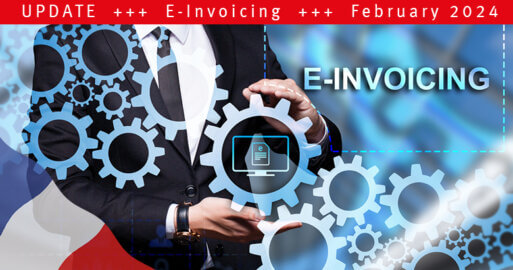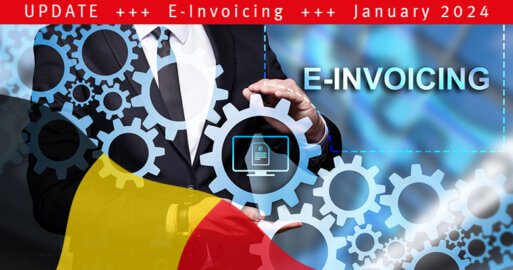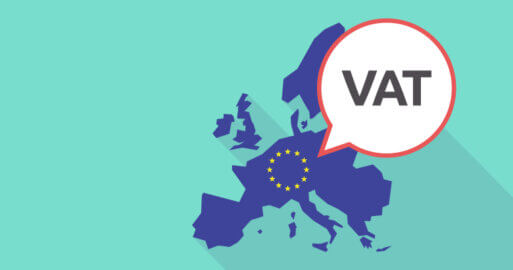Mandatory e-Invoicing in Greece

Electronic invoicing will be mandatory for B2B in Greece in 2020. The first deadline for the introduction of this new requirement was originally planned for January 2020, but the implementation date has been postponed due to the corona pandemic.
Electronic invoicing: Greece extends business-to-government (B2G) e-invoicing mandates to business-to-business (B2B)With the implementation of Directive 2014/55/EU, the central contracting authorities in Greece have been required to receive invoices in an EN-compliant format since April 2019. This obligation has now been extended to all other contracting authorities since April 2020. |
In 2018 the Greek Ministry of Finance started to issue invoices to the Greek public administration (B2G) and limited liability companies with a ‘test group’. Since April 2019, these invoices must be submitted to the Greek authorities in a defined standard format. As a next step, all taxable persons will have to issue their invoices electronically in 2020.
Learn everything you should know about e-invoicing
in our detailed guide.
However, the implementation of standard mandatory real-time e-invoicing had to be approved by the European Union, similar to Italian e-invoicing. The obligation to transmit transactional data to public administrations in real time is a trend in EU VAT legislation.
The first deadline in Greece for the introduction of this new obligation for B2B invoices was scheduled for January 2020, but the implementation date has been postponed. A voluntary period will start on 1st July 2020 and will end on 1st October 2020. All businesses are required to issue electronic invoices and notify the Greek authorities in due time. By 31st October 2020 at the latest, all historical invoices should have been issued retroactively to 1st July 2020 and reported electronically.
The current COVID 19 pandemic has prevented companies from creating the mandatory format for submitting invoices or from using certified providers to support them. After a public consultation and a pilot project lasting several months, the Greek authority has published a new timetable.
The new deadlines of the mandate:
- Since June 2020 the obligation for sales invoices applies
- From October 2020, the obligation applies to purchase invoices not provided by the above-mentioned domestic taxpayers
- From January 2021 the obligation applies for combined reporting of sales and purchase invoices
Structure of the Greek e-invoicing files
- Invoices must comply with the format proposed by the European Standard for electronic invoicing and are therefore defined according to EN16931-1 together with the rules established by Peppol CIUS
- E-invoices to Greek authorities must be issued by certified software companies established in Greece
- For the issuing of Greek e-invoices, locally available technical specialists must be contracted. These must meet requirements such as ISO certification and AADE registration.
How does the transmission of the invoice data work?
E-invoices must be sent to the MyDATA platform. On this platform, the Greek authorities can process all the data and then create accounting data for each taxpayer in Greece. The transfer method for myDATA is the myDATA REST API. The format of the e-invoice exchanged between the parties is based on the EN standard. All details and other legislation are published on the myDATA website. With this decision, the Greek government is introducing the long-awaited secondary legislation, as required by the Budget Law 2020 at the beginning of this year.
Important parameters and details of the accreditation system
A distinction is made between the creation and transmission of invoices. Service providers are companies that are authorised by the taxable person to issue invoices electronically on their behalf for B2B transactions. They are responsible for the issuance, authenticity and integrity, as well as the real-time transmission of transaction data to the tax authority. Other outsourced functions include direct delivery of the electronic invoice to the buyer and archiving on behalf of the issuer.
Who can assist with the transmission of electronic invoices in Greece?
In order to transmit invoices in Greece, service providers need to be certified. This is an important first step before the introduction of e-invoicing in Greece. The Greek government has now established the legal framework for service providers, which defines their obligations and a number of requirements necessary to certify their invoicing software.
Requirements for the software of service providers
The service provider’s software must meet a number of requirements. For example, the service provider must be able to:
- ensure the integrity and authenticity of the invoice according to the SHA-1 algorithm
- establish a real-time connection with the customer’s software and provide the customer with the invoice in electronic form (or on request in paper form)
Any software that meets these criteria will receive a ‘suitability approval’, which is then valid for five years in Greece. In addition, service providers must be registered in Greece or permanently established in Greece. They must also meet certain technical, security and financial criteria. The invoice data must be stored or archived within the EU.
Summary
Among the EU member states, Italy was one of the pioneers in implementing the EU directives on the obligation to use electronic invoicing and in establishing new technologies for the continuous digitalization of public administration processes. Greece is now following in a similar fashion.
Peppol’s infrastructure is the first choice for many countries to open up more to international trade. Peppol is currently in use in many European countries. Peppol authorities already exist in 11 European countries. Outside Europe, Peppol authorities are represented in Singapore, Australia and New Zealand.
We see a growing trend to introduce Peppol in countries such as Italy (eOrder), Sweden, Norway and now also Greece, in order to meet the requirements for the deadline for the electronic transmission of invoices in a timely manner. The exchange of electronic invoices between companies in Greece is subject to the European standard EN 16931-1 and the rules set out in Peppol CIUS. The required fields of an e-invoice are specified in this publication and listed for each item. Peppol CIUS offers participants a simple and well documented approach to comply with the European standard. This is an important step, as EU Member States are obliged to implement the EU Directive since 18 April 2020.
A scalable and future-proof solution should therefore come from a single source and be operated by an experienced cloud partner who understands and can meet the various e-invoicing requirements of different countries. Alternatively, you can implement and operate all these mandates yourself or work with separate local providers in the respective countries. In this case, however, each of the local providers must be individually managed and monitored.
Furthermore, an e-invoicing solution should be able to process incoming and outgoing documents and, if necessary, other formats and communication channels with Peppol and should be easily and reliably connected to your respective ERP system.
SEEBURGER offers a Peppol Access Point Cloud Service, through which you can exchange Peppol documents. Our services are independent of ERP systems.
Thank you for your message
We appreciate your interest in SEEBURGER
Get in contact with us:
Please enter details about your project in the message section so we can direct your inquiry to the right consultant.
Written by: Andreas Killinger
Andreas Killinger joined SEEBURGER in 2014 and is a product manager, responsible for EDI services and software applications. He specialises in SAP solutions, as well as electronic invoicing (e-invoicing) for globally active customers. Following an apprenticeship as an industrial mechanic and a degree in law and administration, he had various roles in the public sector. He then worked for IBM as an SAP Senior Consultant and SAP Project Manager in international SAP projects from 1999 to 2013.





